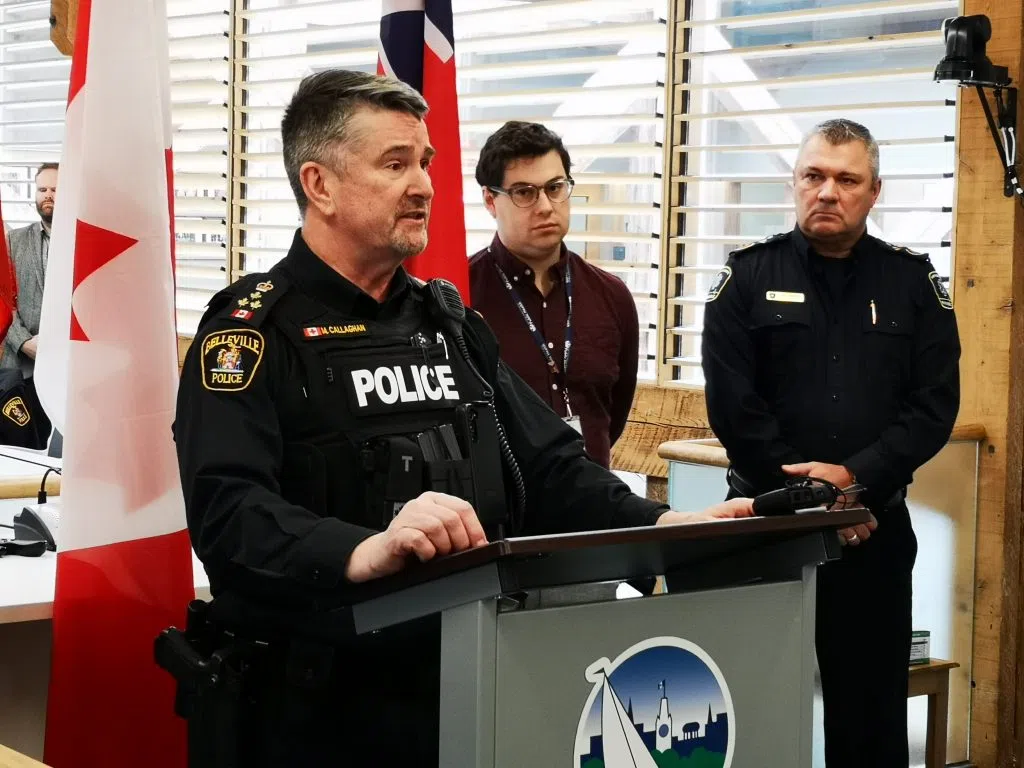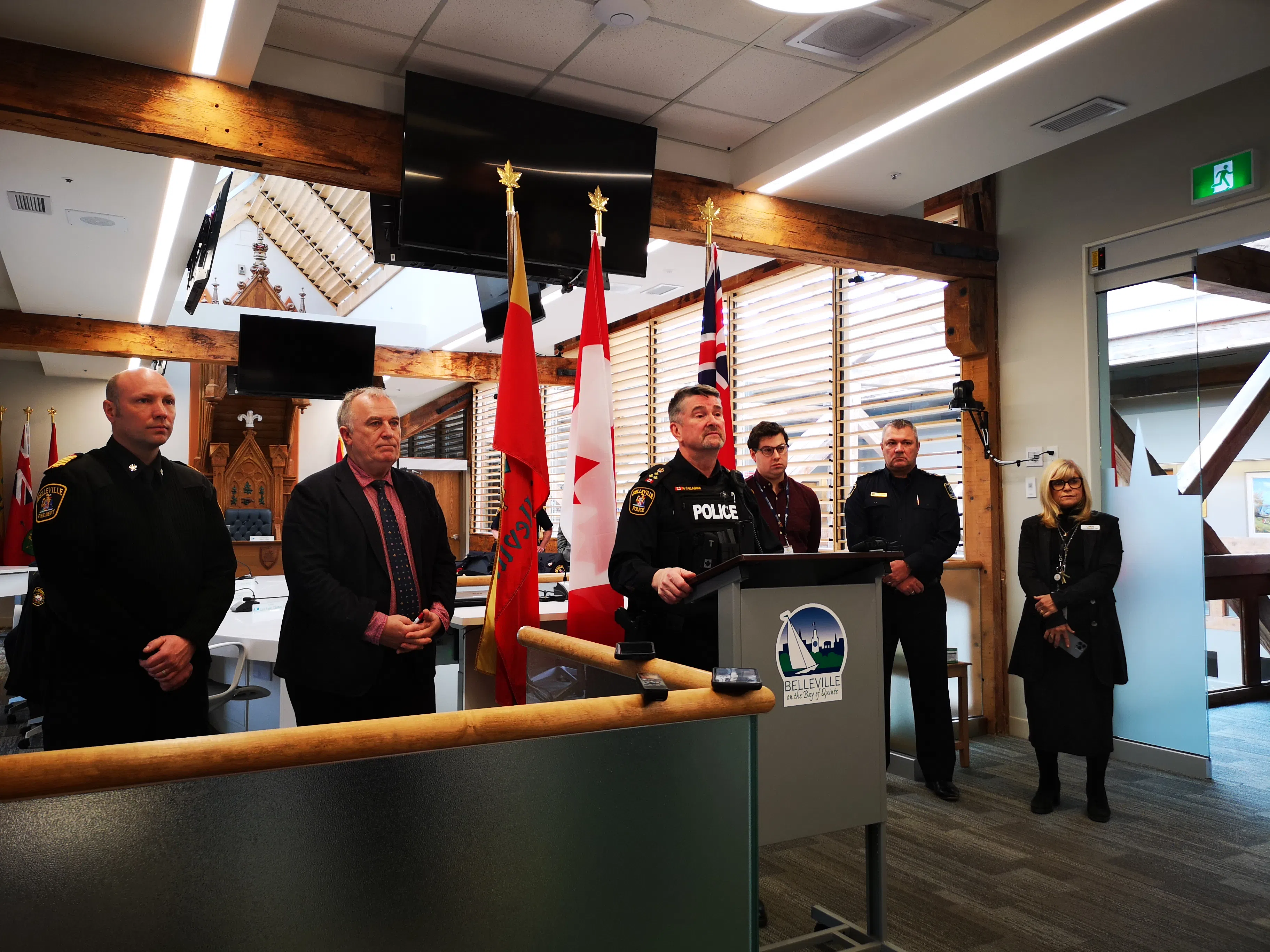Belleville Mayor Neil Ellis, Police Chief Mike Callaghan, Medical Officer of Health for Hastings Prince Edward Public Health Dr. Ethan Toumishey, and other municipal staff and experts held a press conference at Belleville City Hall this morning regarding the recent string of overdoses in the community.
As of the press conference at 11:30 a.m., there had been 17 overdoses reported in the past 24 hours. Nine required transportation to the hospital, but none ended in fatalities. Fourteen of the overdoses were reported between 2 p.m. and 4 p.m., and traffic was redirected away from downtown to ensure access remained open for emergency vehicles.
The sudden burst of overdoses stretched police, fire and ambulance resources, with ambulances pulled in from surrounding areas to help handle the surge of emergency cases.
Mayor Ellis stressed that the current addictions crisis is deeply entwined with the ongoing homelessness situation, and they need provincial and federal help to tackle the problem. Without investments in affordable housing to get people sheltered, help them out of addiction or to treat mental health issues, the situation remains difficult.
“When you look at the situation, communities can’t fix it by themselves. We need funds, human resources, capital resources to get in front of this. I don’t see anything in the horizon,” said Mayor Ellis.

Mayor Neil Ellis addresses the media during a press conference about the recent string of downtown overdoses. Photo: City of Belleville
Plans are still in place to open a homelessness resource centre at the former banquet hall on Alhambra Court to help provide additional immediate supports to the homeless population. Mayor Ellis says that a housing first model would be the gold standard in care, but the municipality can’t provide that on its own.
Ellis also accused other levels of government of neglecting the issue.
“Homeless people don’t vote,” said Mayor Ellis. “Look at federal and provincial governments, giving factories corporate welfare. Whether it’s a billion dollars for a battery plant or ones that we’ve had look at us to be offered $300 million for 100 jobs, but all we can come up with is $6 million for homelessness in Hastings County. It’s a joke.”
Mayor Ellis says there are roughly 200 people experiencing homelessness in the Belleville community, with just under 70% being originally from Hastings County.
Chief Callaghan said that while the drug unit has been making significant busts and working to get illicit drugs off the streets, law enforcement is only part of the solution and that better social services are required to help those suffering from homelessness and addiction.
“I really believe the overarching issue here is not necessarily the absolute interdiction of those drugs, as it is working to address the mental health and addictions and support services in our community,” said Chief Callaghan. “These individuals could be treated in the morning and using again in the afternoon. We need the the mental health and addiction facilities because you don’t know if the addictions came first and then the mental health or there was a mental health and the individual self-medicated to address the mental health challenges.”

Police Chief Callaghan said that the public was never in danger during the string of overdoses, despite traffic being directed away from downtown. Traffic closures were used to ensure roads were clear for emergency vehicles. Photo: Alan-Michael Steele, Quinte News
Police have sent samples of drugs seized during the recent string of overdoses to laboratories for testing to determine what substances exactly are causing the dangerous doses. When asked about the source of these drugs, Chief Callaghan said that some were produced domestically, but a significant amount was being smuggled in from outside Canada.
Police are working to scale up their response to a more proactive model and are expanding the police force to meet the increased need for officers. Plans are in place to add 16 more officers to the police force over the next three years. Eight of those new officers are budgeted for as part of the 2024 budget.
The 2024 budget also includes provisions for an expansion to the city’s fire department, which was also stretched thinly during the cluster of overdoses.






